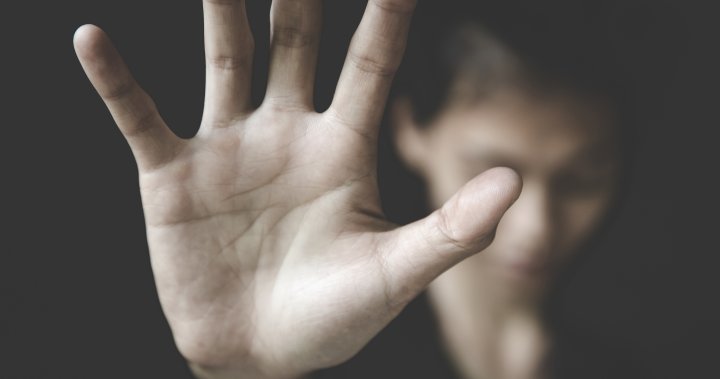WARNING: Some of the details in this story are disturbing and may trigger some readers. Discretion is advised.
Gender based violence is on the rise in B.C., with the province declaring it an epidemic in January.
But the policies do not appear to translate into meaningful support for the women fleeing abuse.
Global News spoke to a mother who fled an abusive relationship with nothing but two suitcases and her child. We are not disclosing her name due to safety reasons.
She said that the discovery of B.C.’s transitional housing system was both a lifeline and a revelation. But the safety she found in that emergency space quickly turned into uncertainty, as she struggled to find long-term housing.
“They said okay, because of your situation, you are now on the top of the list,” she said. “But then you can see lots of other women that are still on that waiting list for seven, eight years.”
BC Housing’s transitional shelters were designed to offer women fleeing violence a temporary refuge – 30 days in first-stage housing and up to 18 months in the second stage.
But waitlists are growing, timelines are stretching, and advocates say many women are staying in what’s meant to be temporary housing for years.
B.C.’s Housing Minister Ravi Kahlon says he understands the urgency.
“We know there’s a shortage of housing in our communities,” he said. “If there’s an individual who wants to leave a violent situation, often housing is the barrier from them not doing it.”
When the BC NDP formed government in 2018, they pledged to build 1,500 units of transitional housing. According to Kahlon, roughly 1,200 units are either completed or under construction. Now, the government says it’s doubling that promise targeting 3,000 units province-wide.
Get breaking National news
For news impacting Canada and around the world, sign up for breaking news alerts delivered directly to you when they happen.
In addition, the province has launched the $72-million Canada-BC Housing Benefit, which provides up to $600 a month for women and families fleeing violence.
It stated that the goal is to help survivors exit transitional housing and access more stable, market-based homes.
Still, survivors and organizers say the gap between policy and reality remains wide.
“There are situations where finally you’ve settled and you need to stay in a space longer,” Kahlon said. “Maybe there’s not an option to go somewhere else… We are going to be flexible.”
That flexibility, however, has created a bottleneck.
According to Nina Melwani, manager of transition houses at the YWCA: “We’re seeing more backlog than in previous years.”
Melwani points to a recent 24-hour census by the BC Society of Transition Houses, which found that more people were denied services this year than in previous years, both in terms of shelter access and permanent housing placements.
“People are using the maximum amount of time that they can,” she said. “Most people are staying a year to 18 months.”
For the survivor Global News spoke with, that timeline stretched into six months in first-stage housing, followed by over two years in second-stage housing.
“At one point I thought we were going to be homeless,” she said. “The places I found were cheap, but when I opened the door, you could feel the smell. There was mold everywhere. I started crying.”
Even when she found places she could afford, she was turned away.
“Being a single mom was a big barrier. Some landlords don’t accept single mothers, especially with kids. They prefer families with two parents.”
Kahlon agreed that landlord discrimination is a concern.
“We do have a process for people that are being turned away so they can raise complaints about that,” he said. “It is a human rights issue if somebody is being precluded because they’re vulnerable or using a rent supplement.”
While the survivor says she is finally living her life freely, she knows others haven’t been as fortunate.
“I saw lots of women go back to their abusers,” she said. “They were scared. They said, ‘at least there I have a room, a bed. What should I do with my kid?’”
For her, the decision to leave only came when her daughter, then just 10 years old, begged her to find the courage.
“She told me, ‘Mom, please stand for yourself by any cause,’” she said. “Otherwise, I would have stayed.”
She now hopes that governments will invest not just in housing, but in the people helping women find it.
“They should put more funding to these housing programs,” she said. “And to those who want to be support workers. Because after abuse, the first thing a woman needs is someone to listen.”
If you or a loved one is experiencing domestic violence in B.C., contact the VictimLinkBC helpline at 1-800-563-0808 or visit victimlinkbc.ca.
© 2025 Global News, a division of Corus Entertainment Inc.
‘I thought we were going to be homeless’: B.C.’s housing crisis affects women fleeing abuse


